
Ariel Schrag
Location: Brooklyn, NY
How would you describe your art: comics
Currently working on: The fourth book in my high school series: Likewise
Day job: teaching art, drama, and sex ed to middle school kids; teaching a writing workshop on comics at The New School University
3 Likes: coca-cola, dogs, doing research
3 Dislikes: handwriting fonts, remakes (especially remakes involving computer animation), indecision
Daily Inspirations: stuff the kids at my school say, stuff my sister says, random words and images.
People you admire: my mom, my old art teacher, my sister, Adrian Tomine, Gabrielle Bell
Superpower you would most like to possess: fly
- - -
This interview took place with Ariel at the beginning of December 2004. All images reproduced with permission from Definition ©Ariel Schrag
- - -
Hi Ariel, what are you up to at the moment?
Oh, just trying to figure out what to do with my life next.
The thing that amazes me about your art is the honesty of your story. I, as I’m sure many others do, connect with your depictions of yourself, and your experiences of school, sexuality, friendships, relationships and growing up. Do you receive much feedback from your audiences re: the effect your comics have had on them?
Yes. It’s great to hear how its positively effected people. It’s also fascinating when someone has a negative reaction. It’s true that I wrote the books for my own enjoyment, but really, I think the reason anyone writes is to communicate with people. If I can make someone laugh, or empathize with something in the book, it’s pretty much the best thing.
Was it useful for you to document your sexual exploration, as another form of coming out?
Probably, but I didn’t really think about it that way.
One thing that always gets me about reading Definition & Potential is: where there really that many lesbians at your school & where you grew up?
Yeah, it was a trend. Most of those people stopped being gay by my senior year, and even fewer are gay now. But it was fun while it lasted.
When I read autobiographical zines/comics/books/art there’s always the question of ‘autobiographical truth’ in the back of my mind: how much can I believe in this depiction to be truth & not presented through rose-tinted glasses, or with artistic licence. There’s something utterly believable about what you present. What are your thoughts on artistic licence in autobiography and autobiographical art?
With this High School project I was really obsessed with only depicting what I saw as “the truth.” Of course, whatever that is is completely subjective. I didn’t make up any facts or scenes, but I did condense events and conversations. I wouldn’t say that the comic is a completely accurate depiction of myself in high school, but it is one honest interpretation. I have all these sources from those years: notebook entries, letters, tape recordings, video recordings, and each of these present different versions of the past. The comic, like my memory, is just another version.
The comic genre is so dominated by fantasy – how important to you is the alternative comic genre in which people can, and do, focus on real life issues, and autobiographical styling?
A lot of alternative cartoonists were greatly influenced by other forms of comics. I never read Superhero comics, but I did read a lot of Uncle Scrooge, and I know that it had a great influence on me. I was definitely more inspired by comics like Maus and Ariel Bordeaux’s Deep Girl, but I would never disown Uncle Scrooge.
The truths about the realities and stories of marginalized groups have been hidden and lied about throughout history. To what extent do you see / feel your honest depictions of a woman’s life, a queer woman’s life, to be a positive step towards representing and voicing marginalized stories? Is it a conscious aim in your work?
I think that my books are a positive step in the representation of queer women’s lives. I wouldn’t say that that was a conscious aim, though. When I started writing the books with Awkward, my character was straight. The gay thing just evolved as the books continued. While I wrote the books I was really just concerned with explaining what had happened to me over the school year. Now that it’s after the fact I see the political impact they can have and I’m really happy about it. I think that if politics had been a concern while I wrote them though, they wouldn’t have worked, politically or artistically.
I once read a quote that stated: ‘Art has always been about finances, but with so much public art, its not so true anymore. The ‘punk process’ is about taking art out of museums’ Do you see your comics, (as art easily obtained by the public), being part of this ‘punk process’?
Zine culture was a large influence on my comics, but so was art that I viewed in museums. What I’ve always liked about comics is that they can exist in both worlds; they can be mass produced and distributed like books, and the original pages can be appreciated on their own as “fine art.” As far as money goes, I’ve never made a lot of money from my comics, and I would continue to make them if I made no money. It’s frustrating though, because comics are extremely time-consuming, and if I made more money from them, I would have more time to spend on them.
By being involved in the alternative comic / cultural scenes, outside the mainstream artistic canon, do you think this allows you the opportunity to be a commentator on the dynamics of encounters between ‘insiders’ and ‘outsiders’, ‘difference’ and ‘inclusion’?
I’ve actually always considered my comics to be fairly commercial. They’re teen stories told with relatively straightforward narration and accessible, relatable drawings. It’s true that the queer subject matter and comics form is more “outsider” than compared to say, a straight teen TV show, but relative to say, abstract performance art, I feel more in the mainstream.
There’s a scene in Definition where you take your comic, Awkward, to a comic fair and meet lots of different characters there. How important is the comic community to fledgling, and established artists?
It was really important to me. When I first drew Awkward I wasn’t aware of the alternative comics scene. Then I went to Alternative Press Expo (the comics fair depicted in Definition) and I realized there was this whole world out there. It was incredibly inspiring. Now it’s ten years later and comics conventions can be really depressing. But as you grow older everything starts to show its grim side. It’s been fun to be part of the comics scene and have other cartoonist friends because you kind of feel like you belong to this secret club that no one has discovered is cool yet.
That’s really starting to change though, as comics are getting more respect and mainstream visibility. I think cartoonists are both pleased and possessive about these changes.
In Definition, there seemed to be equal parts support and intimidation from other artists, audiences, and ‘business types’ the fairs. How daunting is showing your art at these events?
I was nervous the first time, but after that, not very daunting at all.
The emotion portrayed in your comics is often shown through an alternative drawing style. Your anxiety dreams, or when characters are seen as objects of beauty, are often drawn in a ‘dreamy’ style, using ‘fine art’/’portrait’ styles that differ from your usual comic book art. Or, at the end of Definition, when you feel incomplete and lost, you draw yourself incomplete: made up of a series of dots. These depictions of emotion take the audience through your emotional journey in very clever ways. Are the ways you style and draw ‘emotion’ a conscious aim to depict emotion in an overt way? – since emotions and feelings are key in your art.
Yes.
Music has featured in the background of a lot of your comics, whether L7, No Doubt, Violent Femmes, Dance Hall Crashers, etc. Does music still play a big part in your life?
Oh Music… Another thing about cartoonists is that many of us hate musicians because they get all the respect and girls (or boys) we wish we had. That aside, I listen to a lot of music while I ink my comics. Listening to music and inking my comics is pretty much one of my top 5 favourite activities. Right now I find particular inspiration in Eminem and the Beach Boys. As far as going to concerts and idolizing rock stars like I used to, that sort of faded after tenth grade.
How did you become involved with Mr. Lady Records, and doing the cover art for the Calling all Kings and Queens compilation? Is this something you’d like to do more of?
Kaia contacted me and I was happy to do the illustration. I like doing illustration.
How did the screenplay version of Potential come about?
Killer Films contacted me and we had a general meeting. They said they were interested in me as a writer and asked me if there were any projects I would like to do. I said I would like to make a live action feature of Potential.
Killer films have made some very interesting & important films in the past. Do you feel comfortable with them, over others, making Potential?
Making a film adaptation of one of my books hadn’t been a goal of mine, but because it was Killer I felt really good about it. Other companies had contacted me but they just made me nervous. Killer felt perfect.
To what extent are you involved with / linked to Prism Comics? (the non-profit organisation dedicated to promoting the work of LGBT creators in the comics industry, as well as LGBT themes in comics in general)
I believe I am listed in their pamphlet and on their website.
Did your ideas for illustrating children’s books about kids with diseases/medical conditions ever develop?
I think I might like talking about that more than I would like actually doing it. But who knows.
How difficult is it to balance out your art/comics ideas alongside going to University/working? Does it get frustrating that there’s not always the time to act on all your ideas?
When I was in college it just sucked that I didn’t have as much time. But I could always tell myself that the stuff I was learning would ultimately benefit my art. Now that I’m working, the balance between art and money can get very confusing and distressing. I’m still sort of figuring out how I want to do things.
You’ve been positioned as somewhat of a queer/feminist icon because of your artwork (as shown through your recognition on tracks by bands such as Le Tigre). What are your thoughts on this?
It’s great. I’m proud to be part of it.
Location: Brooklyn, NY
How would you describe your art: comics
Currently working on: The fourth book in my high school series: Likewise
Day job: teaching art, drama, and sex ed to middle school kids; teaching a writing workshop on comics at The New School University
3 Likes: coca-cola, dogs, doing research
3 Dislikes: handwriting fonts, remakes (especially remakes involving computer animation), indecision
Daily Inspirations: stuff the kids at my school say, stuff my sister says, random words and images.
People you admire: my mom, my old art teacher, my sister, Adrian Tomine, Gabrielle Bell
Superpower you would most like to possess: fly
- - -
This interview took place with Ariel at the beginning of December 2004. All images reproduced with permission from Definition ©Ariel Schrag
- - -
Hi Ariel, what are you up to at the moment?
Oh, just trying to figure out what to do with my life next.
The thing that amazes me about your art is the honesty of your story. I, as I’m sure many others do, connect with your depictions of yourself, and your experiences of school, sexuality, friendships, relationships and growing up. Do you receive much feedback from your audiences re: the effect your comics have had on them?
Yes. It’s great to hear how its positively effected people. It’s also fascinating when someone has a negative reaction. It’s true that I wrote the books for my own enjoyment, but really, I think the reason anyone writes is to communicate with people. If I can make someone laugh, or empathize with something in the book, it’s pretty much the best thing.
Was it useful for you to document your sexual exploration, as another form of coming out?
Probably, but I didn’t really think about it that way.
One thing that always gets me about reading Definition & Potential is: where there really that many lesbians at your school & where you grew up?
Yeah, it was a trend. Most of those people stopped being gay by my senior year, and even fewer are gay now. But it was fun while it lasted.
When I read autobiographical zines/comics/books/art there’s always the question of ‘autobiographical truth’ in the back of my mind: how much can I believe in this depiction to be truth & not presented through rose-tinted glasses, or with artistic licence. There’s something utterly believable about what you present. What are your thoughts on artistic licence in autobiography and autobiographical art?
With this High School project I was really obsessed with only depicting what I saw as “the truth.” Of course, whatever that is is completely subjective. I didn’t make up any facts or scenes, but I did condense events and conversations. I wouldn’t say that the comic is a completely accurate depiction of myself in high school, but it is one honest interpretation. I have all these sources from those years: notebook entries, letters, tape recordings, video recordings, and each of these present different versions of the past. The comic, like my memory, is just another version.
The comic genre is so dominated by fantasy – how important to you is the alternative comic genre in which people can, and do, focus on real life issues, and autobiographical styling?
A lot of alternative cartoonists were greatly influenced by other forms of comics. I never read Superhero comics, but I did read a lot of Uncle Scrooge, and I know that it had a great influence on me. I was definitely more inspired by comics like Maus and Ariel Bordeaux’s Deep Girl, but I would never disown Uncle Scrooge.
The truths about the realities and stories of marginalized groups have been hidden and lied about throughout history. To what extent do you see / feel your honest depictions of a woman’s life, a queer woman’s life, to be a positive step towards representing and voicing marginalized stories? Is it a conscious aim in your work?
I think that my books are a positive step in the representation of queer women’s lives. I wouldn’t say that that was a conscious aim, though. When I started writing the books with Awkward, my character was straight. The gay thing just evolved as the books continued. While I wrote the books I was really just concerned with explaining what had happened to me over the school year. Now that it’s after the fact I see the political impact they can have and I’m really happy about it. I think that if politics had been a concern while I wrote them though, they wouldn’t have worked, politically or artistically.
I once read a quote that stated: ‘Art has always been about finances, but with so much public art, its not so true anymore. The ‘punk process’ is about taking art out of museums’ Do you see your comics, (as art easily obtained by the public), being part of this ‘punk process’?
Zine culture was a large influence on my comics, but so was art that I viewed in museums. What I’ve always liked about comics is that they can exist in both worlds; they can be mass produced and distributed like books, and the original pages can be appreciated on their own as “fine art.” As far as money goes, I’ve never made a lot of money from my comics, and I would continue to make them if I made no money. It’s frustrating though, because comics are extremely time-consuming, and if I made more money from them, I would have more time to spend on them.
By being involved in the alternative comic / cultural scenes, outside the mainstream artistic canon, do you think this allows you the opportunity to be a commentator on the dynamics of encounters between ‘insiders’ and ‘outsiders’, ‘difference’ and ‘inclusion’?
I’ve actually always considered my comics to be fairly commercial. They’re teen stories told with relatively straightforward narration and accessible, relatable drawings. It’s true that the queer subject matter and comics form is more “outsider” than compared to say, a straight teen TV show, but relative to say, abstract performance art, I feel more in the mainstream.
There’s a scene in Definition where you take your comic, Awkward, to a comic fair and meet lots of different characters there. How important is the comic community to fledgling, and established artists?
It was really important to me. When I first drew Awkward I wasn’t aware of the alternative comics scene. Then I went to Alternative Press Expo (the comics fair depicted in Definition) and I realized there was this whole world out there. It was incredibly inspiring. Now it’s ten years later and comics conventions can be really depressing. But as you grow older everything starts to show its grim side. It’s been fun to be part of the comics scene and have other cartoonist friends because you kind of feel like you belong to this secret club that no one has discovered is cool yet.
That’s really starting to change though, as comics are getting more respect and mainstream visibility. I think cartoonists are both pleased and possessive about these changes.
In Definition, there seemed to be equal parts support and intimidation from other artists, audiences, and ‘business types’ the fairs. How daunting is showing your art at these events?
I was nervous the first time, but after that, not very daunting at all.
The emotion portrayed in your comics is often shown through an alternative drawing style. Your anxiety dreams, or when characters are seen as objects of beauty, are often drawn in a ‘dreamy’ style, using ‘fine art’/’portrait’ styles that differ from your usual comic book art. Or, at the end of Definition, when you feel incomplete and lost, you draw yourself incomplete: made up of a series of dots. These depictions of emotion take the audience through your emotional journey in very clever ways. Are the ways you style and draw ‘emotion’ a conscious aim to depict emotion in an overt way? – since emotions and feelings are key in your art.
Yes.
Music has featured in the background of a lot of your comics, whether L7, No Doubt, Violent Femmes, Dance Hall Crashers, etc. Does music still play a big part in your life?
Oh Music… Another thing about cartoonists is that many of us hate musicians because they get all the respect and girls (or boys) we wish we had. That aside, I listen to a lot of music while I ink my comics. Listening to music and inking my comics is pretty much one of my top 5 favourite activities. Right now I find particular inspiration in Eminem and the Beach Boys. As far as going to concerts and idolizing rock stars like I used to, that sort of faded after tenth grade.
How did you become involved with Mr. Lady Records, and doing the cover art for the Calling all Kings and Queens compilation? Is this something you’d like to do more of?
Kaia contacted me and I was happy to do the illustration. I like doing illustration.
How did the screenplay version of Potential come about?
Killer Films contacted me and we had a general meeting. They said they were interested in me as a writer and asked me if there were any projects I would like to do. I said I would like to make a live action feature of Potential.
Killer films have made some very interesting & important films in the past. Do you feel comfortable with them, over others, making Potential?
Making a film adaptation of one of my books hadn’t been a goal of mine, but because it was Killer I felt really good about it. Other companies had contacted me but they just made me nervous. Killer felt perfect.
To what extent are you involved with / linked to Prism Comics? (the non-profit organisation dedicated to promoting the work of LGBT creators in the comics industry, as well as LGBT themes in comics in general)
I believe I am listed in their pamphlet and on their website.
Did your ideas for illustrating children’s books about kids with diseases/medical conditions ever develop?
I think I might like talking about that more than I would like actually doing it. But who knows.
How difficult is it to balance out your art/comics ideas alongside going to University/working? Does it get frustrating that there’s not always the time to act on all your ideas?
When I was in college it just sucked that I didn’t have as much time. But I could always tell myself that the stuff I was learning would ultimately benefit my art. Now that I’m working, the balance between art and money can get very confusing and distressing. I’m still sort of figuring out how I want to do things.
You’ve been positioned as somewhat of a queer/feminist icon because of your artwork (as shown through your recognition on tracks by bands such as Le Tigre). What are your thoughts on this?
It’s great. I’m proud to be part of it.
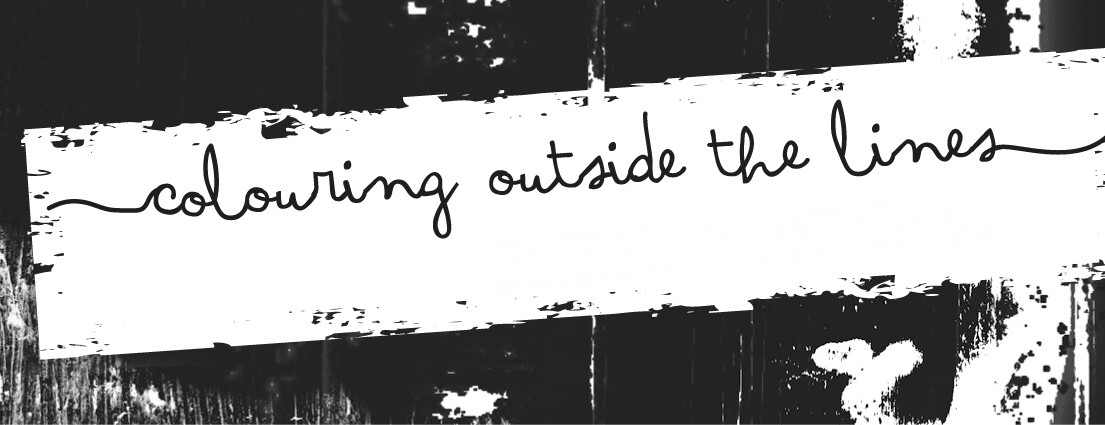





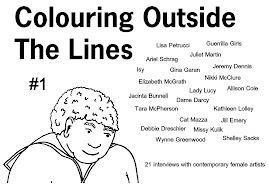
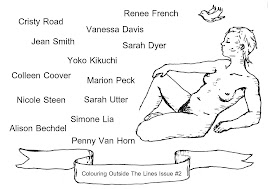

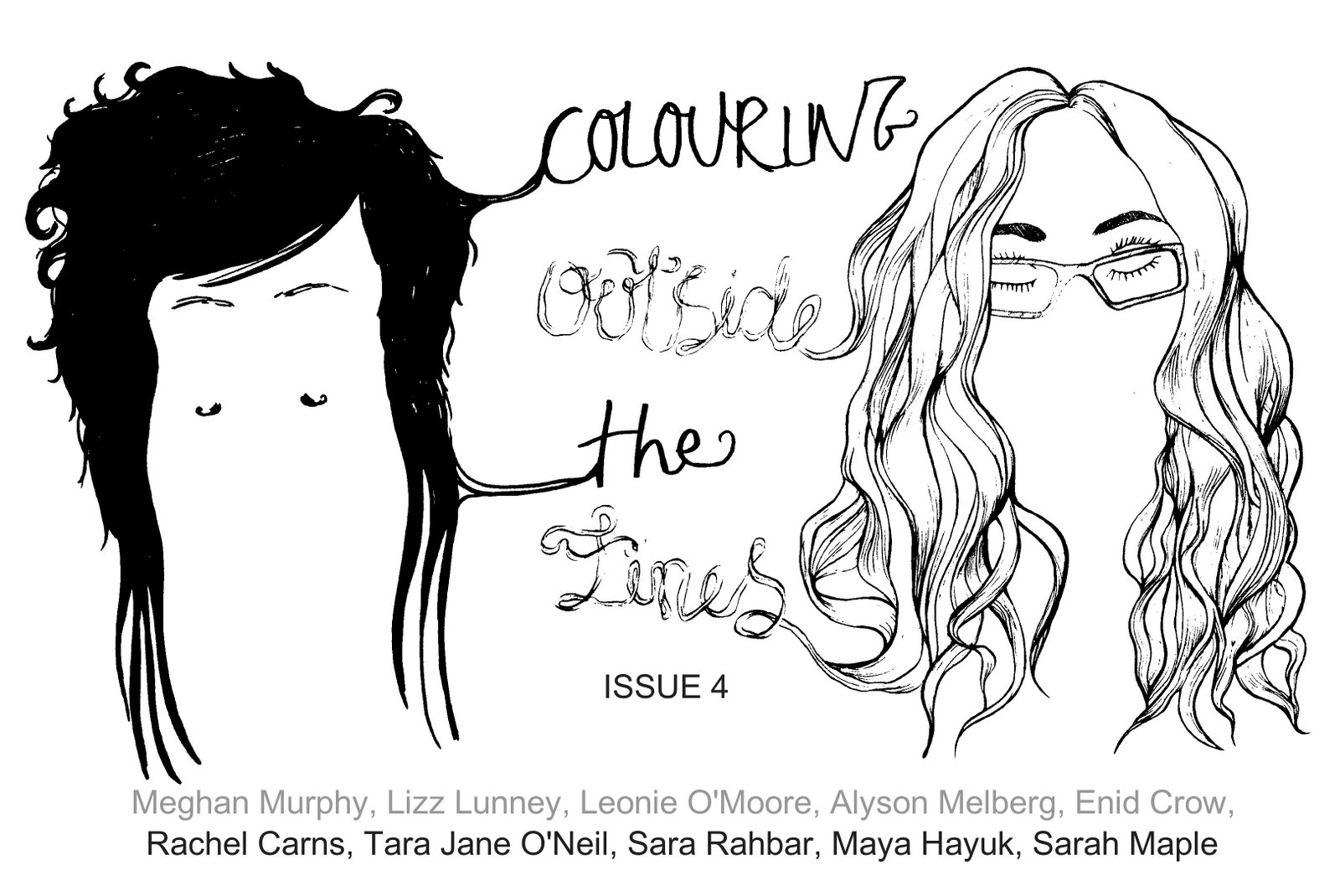

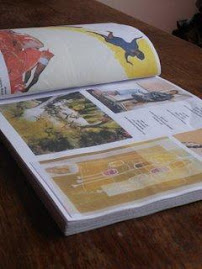



No comments:
Post a Comment